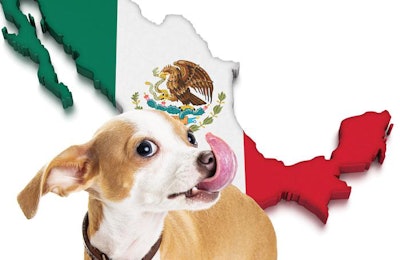
What are the prospects for the Mexican pet food industry in the wake of the spreading coronavirus pandemic? With 82 confirmed cases of COVID-19 as of March 17, 2020, Mexico is in a tense calm. Authorities are foreseeing that the bigger contagion stage of the coronavirus will skyrocket in the next two or three weeks.
At this point, new cases of infections will be counted in hundreds or thousands, while most outdoor public activities, including music concerts and festivals, are canceled. Mexican schools have already rescheduled the Easter break and expanded it to one month. Air flights will be soon restrained by approximately 40%.
In this scenario, how will the local pet food industry fare?
Negative shock limited for pet food industry
The main economic impact of the coronavirus outbreak on pet food would be a supply shock, which means production and factories may stop due to contagion or for prevention. Therefore, the distribution of consumer products overall would decline, while consumption remained.
Since the Mexican pet food market does not depend on foreign-manufactured products or foreign raw inputs, the shock is only local. Mexico produces about 100,000 metric tons of pet food per month. Thus, in the unlikely and extreme scenario of stopping the entire pet food production, only 8% of the local supply would vanish per month.
A longer production shutdown is less likely to occur, as most of the factories are in non-urban and remote areas of Mexico. Besides, the annual pet food production peaks are in November and December.
No negative impacts on pet food demand
The coronavirus crisis cannot be considered a demand shock, as the demand for pet food will not likely shrink. According to expert sources, the rate of death for COVID-19 is rather low, so infected pet owners would likely keep their pets.
However, short-term demand may skyrocket as panic buying appears. In fact, panic shopping has already started in Mexico; yet, according to reports, consumers are more interested in food, toilet paper and other items than in pet food. As panic buying continues, including possibly of pet food products, it may provoke a temporary peak in demand for pet food that would smooth out over the following weeks.
All the above signals that the pet food industry is possibly one of the least vulnerable to the outbreak, which amidst the current crisis is positive news. However, local consumers, including pet owners, should follow the advice of health specialists and authorities to minimize damages and avoid practices that aid spreading of the virus.
View our continuing coverage of the coronavirus/COVID-19 pandemic.
















